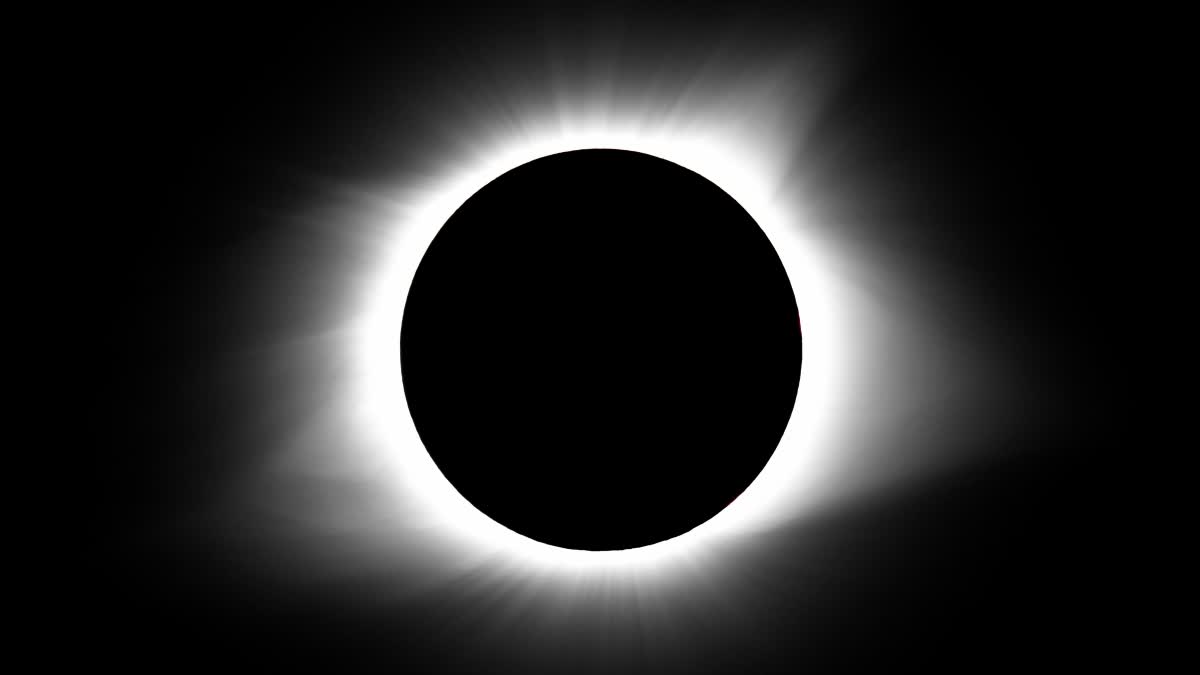Hyderabad: A total Solar Eclipse will brighten the night sky across North America, transforming day into night on Monday, April 8. Expected to be a celestial marvel, this eclipse offers extended duration and heightened activity due to the moon's proximity to Earth and potential solar eruptions.
What Is A Solar Eclipse?
A total solar eclipse occurs when the Moon passes between Earth and the Sun, blocking the Sun’s light either completely or partially. When the Moon completely blocks the sun’s light, a narrow band of shadow moves across the Earth’s surface, known as the “path of totality.” People standing within this band can see a total solar eclipse. If the weather and clouds are right, the path of totality will turn the sky as dark as dawn or dusk.
Total Solar Eclipse Timing
On April 8, the total Solar Eclipse (also known as a “path of totality”) will cross the United States, Mexico, Canada, and up to 18 different US states. However, the total eclipse will not be visible in India. The total eclipse will begin on April 8 at 09.12 pm local time (IST). The total eclipse will last for about an hour and a half, and will end on April 9, 2024, at 2.22 am (IST).
The Pacific Coast of Mexico will get the first glimpse of the total eclipse at approximately 11.07 am local time (PT). The eclipse will leave the coast of Maine at approximately 1.30 am PT.
Total Solar Eclipse Duration
The whole event will take about two and a half hours, but totality will only last about four minutes. As per NASA, the peak spectacle is expected to last for up to 4 minutes and 27 seconds in the path of total darkness.
How can Indians Watch Total Solar Eclipse?
The Solar Eclipse won't be visible in India. The live stream of the celestial marvel will be organised by the NASA and it will be live from 10.30 PM IST on April 8 to 1.30 AM IST on April 9. The livestream will feature telescope views of the eclipse from several sites in its path along with conversations with experts from NASA and elsewhere.
- " class="align-text-top noRightClick twitterSection" data="">
During the eclipse, small rockets will blast off from Wallops Island, Virginia, with science instruments into the electrically charged portion of the atmosphere near the edge of space known as the ionosphere.
Why is Total Solar Eclipse Rare?
The rarity of total solar eclipses stems from logistical challenges in locating suitable viewing sites, compounded by the dominance of oceans covering over 70 per cent of Earth's surface. Consequently, such events often unfold in remote locales, further enhancing their allure and mystique.
Read More
Worry Not Skygazers! Here's How You Can Watch April 8 Solar Eclipse in India
Solar Eclipse: Celestial Marvel on April 8, Will it be Visible in India? Know All
NASA to Launch Sounding Rockets into Moon’s Shadow During April 8 Solar Eclipse



